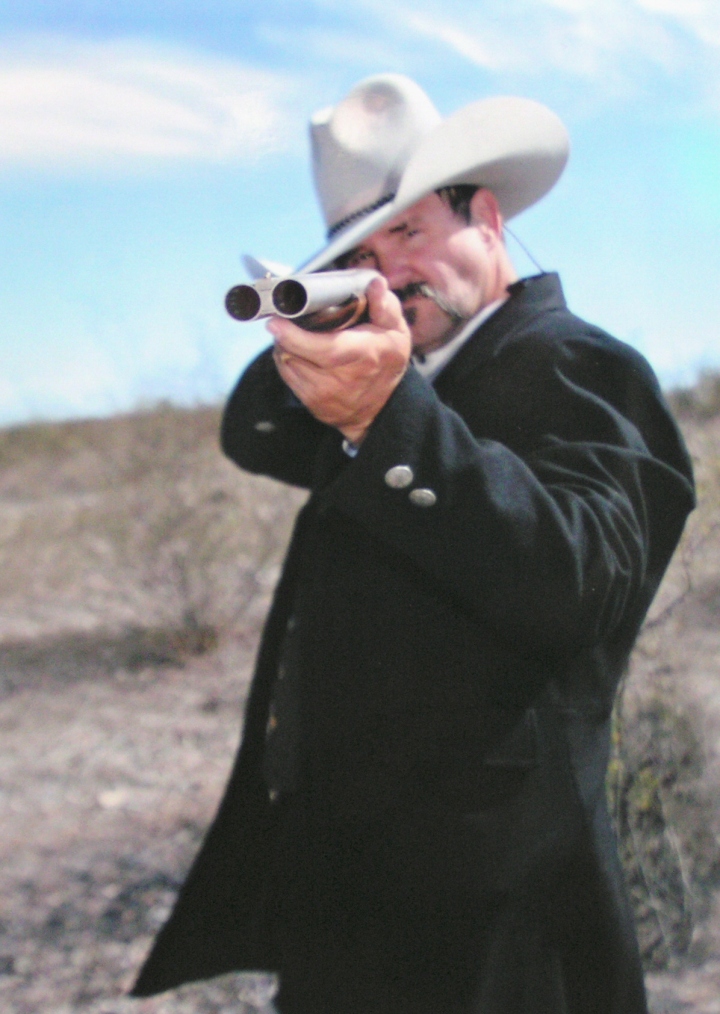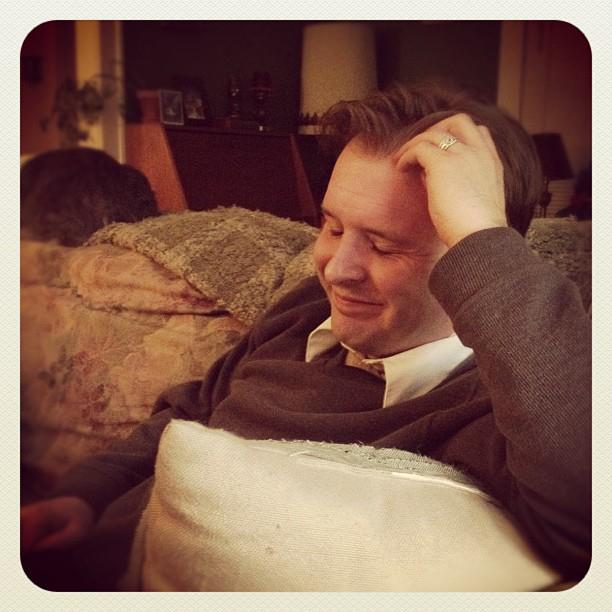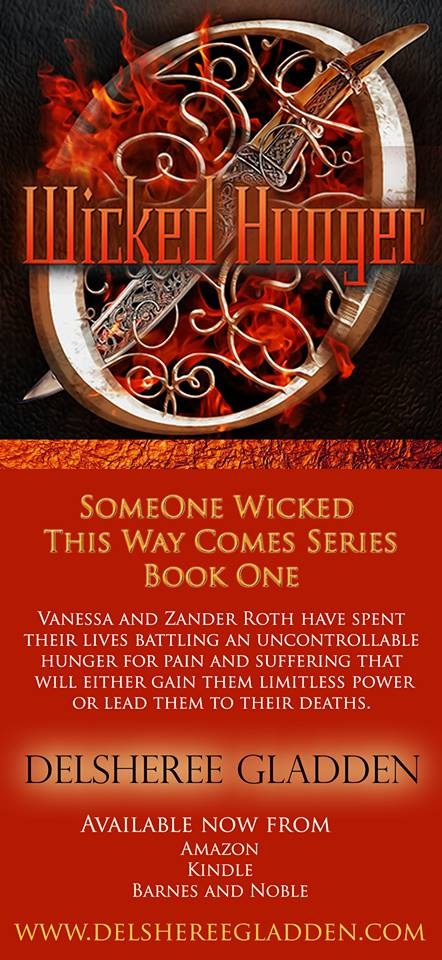Playwrights
That actor on stage is nothing more than a middleman. The gesticulations are his, and the emotions, but those words, those lines, are borrowed from someone else. These thespians whom we’ve elevated to idols, on the stage or on screen, dedicate their lives to memorizing someone else’s ideas. This “someone” is a writer who lives on the leeward side of the gossamer curtains that separate fame from obscurity. I know exactly who Brad Pitt is (he’s that guy who’s buying foreign children like the rest of us buy candy bars) but I can’t name any of the people who’ve written the words upon which his fame has been founded. It’s a shame. Ergo, I’ve decided to dedicate my final look into burgeoning authors to playwrights.
As a personal point of contention, the honorific of “playwright” has always annoyed me. I understand that the “wright” is added because of the profession; a wheelwright makes wheels, a playwright makes plays. But it’d make more sense if we spelled it “playwrite” because 1.) silent g’s shouldn’t exist, and 2.) plays are written, not forged like wheels. Whatever. I know it’s a rather trivial complaint, but I still think it’s valid.
I’ve never attempted to write a play, but I grew up going to them. Granted, the productions that made it to Alaska were about as far “off-Broadway” as they can get, but they were better than nothing. We’d bundle up and drive down to the performing art center in downtown Anchorage and mingle with the other fur-clad denizens of our arctic paradise. All the grownups would sip champagne and do their best to pretend that they were surrounded by culture as opposed to living in an Alaskan exile. All the kids would pretend to be grownups. We’d file in, ushered by the ushers, and find our velvet upholstered seats. We’d thumb through the program. The lights would dim, the curtains would part, and the show would begin. Afterward, we’d always stand and clap for more no matter what. The ovation was a product of our far-north isolation; it had nothing to do with the quality of the play. “Please, you fine thespians from a place with four seasons, please give us more. Don’t leave us here with naught but the cold.”
We’d always linger long after the play had concluded. Everybody seemed to speak a bit louder, laugh a bit longer. Maybe they were trying to imitate the actors whom they had paid dearly to see. Maybe they too were trying to project their voices to an impromptu audience of their fellow play lovers. Either way, I remember the plays from my youth fondly. But again, I only remember the actors on stage. I’m sure the playwright was given due credit in the program through which I thumbed, but in retrospect, it just doesn’t seem like enough.
***
The first author in this last segment is Alicia Wozniak, who was born and raised in Cleveland. “Woz” now lives in Tampa, with the rest of Ohio. This 40 year old can be found teaching Zumba, all over Facebook, figuring out Twitter, blogging, and working her full time gig in a marketing division of a textbook publisher. She wonders how many jobs she really needs. If she isn’t moving, she’s unconscious. Life, which includes a Weez, is good and as long as the beer is cold and it isn’t snowing, she’ll keep moving forward—Xanax close at hand.
You can find more of her work at: http://putthecatdown.wordpress.com/
Harry’s Melon
Once upon a time in a faraway land… Oh who am I kidding? (take an enormous bite of a sammich and talk with your mouth full while speaking) There’s dis guy who lives in Cleveland. His name is Harry, but he ain’t got any on his head. You’d think dis guy would like, ya know, wear that stuff, what’s it called, sunscreen? (finally swallow) Yeah, or maybe even a hat to protect his dome from the sun. I mean, that giant ball in the sky Clevelanders hardly ever see has powerfully wicked stuff coming outta dere that can cause like cancer and shit. (take a long drag on a cig)
(another bite of sammich…wipe mayo from chin after wife hands you a napkin) Well, Harry, he never listened to his mutha. (swallow and pick food out of teeth while still talking and laugh) So, dis guys been walkin’ around Cleveland for like 60, maybe 70 years with the sun’s rays bouncin’ off his melon like a friggen disco ball, right? Right, Pauly! (Pauly, covered in marinara sauce, nods)
(sit back in chair and loosen button on pants, remove napkin from tank top) Yeah, so his doc says, “Hey, Harry. You gotta bump up here and I gotta take it off, OK?” So, now Harry looks like a friggen bowling ball, right Pauly!? (Pauly raises a greasy two thumbs up) Dis guy, he’s funny. He’s making up stories and stuff about Obama-care policy of withdrawing active brain cells from the accomplished for implantation into the heads of less skilled members of a certain political party or some shit like that. I ain’t got no idea what the Hell he’s talkin’ about. I’m thinkin’ Harry hits the Jack maybe a little too hard, but what do I know, right? To each his own. Hey, Maria! Where the Hell is my dessert?! (obscene words and breaking dishes heard from off stage)
(take a giant gulp of iced tea from a ridiculously large plastic cup from random theme park) So, yeah, Harry’s got holes in his head now and he’s gotta be good and wear hats. I mean had he just listened to his mutha… (drag on cig) I’m sure she bought him some nice hats over da years and his kids too. I bet they bought him hats too from where ever the Hell they go cuz you know they don’t come home as often as they should, right, Maria? Friggen ungrateful little bastards. I tell ya, me and Maria we ain’t got nuttin’ nice because we spend all our money on our kids and you’d think they could come home once in a while and show some respect. (look around in disgust and admire plastic covered couch, get lost in on coming food coma)
But I digress. (put out cig) Harry, he’s a good man and da holes they are gonna heal. Let’s all say a prayer that the doc got da crap outta his head. (obscene words and breaking dishes heard from off stage finally stops, Pauly stops eating and our narrator starts snoring)
***
The second author, and the writer with which I’ll be concluding this five part look into burgeoning authors, is Randy Carr. Futher information on this last writer can be found after his piece. The following is an excerpt from his play which has been chosen to kick off the 2013 South West Festival of the Written Word in Silver City.
Randy Carr obtained his BA in Acting and Directing from Eastern Washington University and his Masters in Human Relations from Pacific Lutheran University.
A retired investigator, now settled in the history rich southwestern corner of New Mexico, he quickly immersed himself in the history of the area. The result is “TUCK,” © an original play designed to entertain and educate audiences about the real old west and one of its true-life unsung heros. He can be reached at deputydantucker@gmail.com.
TUCK
ACT II, Scene 1
Thet there wern’t the first lynchin’ bee in town. One feller got his self hung three times.
(Refills coffee.)
See, theys two perfessions thet wuz highly regarded in yer frontier town. One wuz a good blacksmith, t’other wuz a good bartender. ‘Cordin’ to many, Arkansas Bob Black wuz the best bartender Shakespeare ever seed.
Now fer this story to make any sense at all you haf ta unnerstand thet the first civilizin’ influence on any frontier town wuz the arrival of the wives. The presence of them wimmenfolk jus’ had a calmin’ effect on the men. They demanded, ‘n got, the kind of comforts ‘n genteel social atmosphere thet might be found in yer better locales. As you might figger, the menfolk, ‘specially husbands, would do near anythin’ to keep the wives happy.
(Chuckles to himself.)
S’pose some things never change (Pause.) Anyways thet is why old Arkansas Bob got his self hung.
He wuz a handsome scoundrel, alus wore his hair greased back, sported a big waxed handlebar mustache ‘n a ready smile. He had quite an eye fer the ladies, too. But they wern’t no single ladies in Shakespeare jus’ then, so Bob Black took up with this married gal. ‘N fer whatever reason, her husband didn’t object.
When he started sparkin’ thet married gal, the other wives in town got some (Pause.) o-ffended, I reckon you could say. This jus’ could not be allowed ‘n they demanded their husbands do sumthin’ ‘bout it. So, one night a bunch a husbands come up to Arkansas Bob, explained the sitchyation ‘n po-litely suggested it would be good fer him to leave town fer a spell. They done this with some pause cuz they liked Bob. Imagine their surprise when ol’ Bob tol’ em’ to go stick it in their hats. When the husbands reported back to the wives thet Bob wouldn’t leave, the wives, bein’ the great civilizin’ influence thet they wuz, sez “Well, hang ‘im then!”
(Crosses and picks up lariat.)
Soooo, the men got ‘em a coil a rope ‘n went huntin’ fer Bob. They give him ‘nother chance to leave, but he weren’t movin’. So they took ‘im over to the Blacksmith shop, tied his hands, roped his neck ‘n hung ‘im from the main beam.
(Imitates hauling down on rope.)
Course, they lowered ‘im right back down ‘n ast if he’d leave now. He sputtered ‘n tol’ em in no uncertain terms thet he weren’t goin’ nowhere, so they hauled ‘im up again.
(Again imitates hauling down on rope.)
They kept him a danglin’ ‘til he turned this pretty shade of blue then lowered him down ‘n ast’ him again if’n he’d leave. His answer wuz nearly as blue as his face. The gist bein’ he wern’t leavin’.
So, up he went a third time.
(Once again imitates hauling down on rope.)
This time they kep’ him swingin’ ‘til he passed out. Then they brung him down, threw water in his face to revive him ‘n ast’ him again. He gasped ‘n wheezed ‘n panted ‘n when he fin’ly got his breath back, he tol’ his strangler’s thet if’n they’d untie ‘im (A beat.) he’d beat ever last one of ‘em into the ground, but he wern’t leavin’.
Now, this left the would-be lynch mob a scratchin’ they heads. They didn’t want to hang ‘im to death, they liked ol’ Bob. Fin’ly one feller suggested thet if they couldn’t git Bob to leave mebbe they could git his galfriend to go instead. So, the group trooped over to thet lady’s adobe, ‘n wakes her ‘n her husband up. They dangled thet rope in her face
(Dangles loop end of lariat.)
‘n tol’ em in no uncertain terms thet if she didn’t leave town she’d be found at the end of thet rope, come mornin’. Sure enuf, before daybreak, thet lady ‘n her husband packed a wagon ‘n headed out.
The miners proudly announced to their wives thet they had fixed the problem. (Pause.) Would they a really hung her? Don’t you ever misjudge the power of a pack a angry wives. ‘N Arkansas Bob? He went back to tendin’ his bar, but thet’s ‘nuther story.
***
Dan Tucker is an undiscovered real life hero of the old west. He was the Chief Deputy Sheriff in Grant County in the New Mexico Territory from 1877 to 1888. Later becoming the first Town Marshal of Silver City, Special Agent for both Wells Fargo Stagecoach Company and the Santa Fe Railroad and finally Deputy United States Marshal. He became one of the most feared, fearless and deadly lawmen of the era, credited with besting at least 12 men in shootouts. He was the one man even Wyatt Earp and his posse gave a wide berth. Tucker’s exploits were not publicized by the dime-novelists of the the day and were not written about until recently. “TUCK” © is his story, the story of the Southwest in the wildest days of the 1870’s and 80’s seen through his eyes.
After the premier of “TUCK” © in Silver City in August of 2012, reviewers wrote the following:
Randy Carr brings “Dangerous” Dan Tucker to life on the stage, in a one-man show that transports the audience back to the heyday of the Wild West. The script deftly mixes history and personality, with just enough bits of both humor and gunplay. Carr makes an ideal Old West lawman, looking back on his “dangerous” career on the occasion of New Mexico’s statehood—think Hal Holbrook’s Mark Twain, if he were packing heat.
David Fryxell – Editor – The Desert Exposure
Those who delight in both local history and good drama will wish to experience Randy Carr’s “Tuck” ©. Accurately dramatizing an earlier Silver City through the dramatic monologue of Deputy Sheriff Dan Tucker, Randy, as author and actor, brings to life a segment of our precious past. Highly commendable as both history and drama, “Tuck”© will significantly enrich our 2012 celebration of New Mexico’s centennial.
Larry Godfrey – author of Dancing with Gods.
“Randy Carr assumes the persona of Sheriff Dan Tucker like it was his second skin. In the deliciously florid yet rough and wry victorian voice of the Old West, Carr/Tucker enthralls us with true and often outrageous stories of hardship, violence, tom foolery, adventure, and wit in old Territorial New Mexico.”
Starr Belsky – Co-Chair, Silver City Arts and Cultural District.
To view the youtube promotional video for the Statehood anniversary presentation of “TUCK,” © click here : http://www.youtube.com/watch?v=LRk0Zn1fpGM&feature=youtu.be
***
If you’ve made it through all five of these segments, I thank you. I’ve written over ten-thousand words throughout these five pieces, and introduced ten different writers who cover the gamut of success and skill. In truth, I didn’t plan on going any further than that first installment, but it’s been fun; I hope you’ve enjoyed it.











